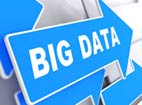The question in the title was one of the more interesting ones that came to the panel I moderated in the Women In Technology Summit. On my panel, I had some extraordinary women: Yael Garten, the manager of data science for mobile products at LinkedIn; Anjul Bhambhri, vice president, big data and streams at IBM; and Cheemin Bo-Lin, president of Peritus Partners.
I was fascinated to learn that two of the areas where Big Data analytics is having a massive impact are not only near and dear to my own heart; they are areas dominated by women. I wrote about Big Data analytics, women, and marketing, which is really where the vast majority of the money is currently spent, and now I’d like to chat about HR. I actually think analytics will make a bigger difference here.
The Power of HR
Now, I’ve been covering Tracy Keogh, the strategic head of HR at HP, for some time, but I didn’t really connect the dots to Big Data analytics until the lone guy in the audience (I’m pretty sure there was just one) at my event asked what was the most compelling (ok only, we ran out of time) audience question. He asked, what about Human Resources, couldn’t these tools be used to assure employees were more loyal, better advocates for company products (using traditional and social networking tools), and were less likely to be wasted? We chatted a bit after the event (trust me, in an event filled with women all more powerful than you are, male bonding becomes a defense mechanism), and fleshed out his thoughts. It got me thinking of what Keogh was doing at HP and a light went off on in my head.
HP, a massive seller of data analytics solutions, was clearly using these tools to turn HP into a much better place to work, showcasing the effectiveness of these tools. But, unlike Karen Quintos at Dell, there was no indication that Keogh was being used as strategically to close deals. I think that is because we just don’t think of HR as being as critical as marketing, but that is an incredibly stupid position to take because HR assures you can execute.
The Data Analytics Improving the Effectiveness and Power of HR
I actually started out with HR (it was called Manpower Management then) as my primary career choice. Fortunately, I hedged with marketing and computer science or I would have been screwed. Thanks largely to the misguided Equal Employment Opportunity Commission (EEOC), HR changed about the time I graduated from a practice based on human psychology designed to make better places to work to one focused on compliance to ensure firms weren’t sued.
This is evidently changing back now, and data analytics is the tool that can provide the deepest insight into how to optimize and motivate your employees. Folks are again learning that anonymous employee satisfaction surveys are a waste of time and money and replacing them with more focused survey programs that engage the employees on the tools they need, motivate them to be public and private advocates for the company, and help them to create products everyone is more passionate about. Big Data is being increasingly used as it has often been dreamt about. Folks like Keogh, and apparently some of the women at the WITI conference, are using this tool to make their companies, and those of their clients, much more agile and successful. Even more importantly, they are becoming places where people are increasingly prouder to work.
You know, I can think of a lot of ways to spend a career, but few are more rewarding than improving people’s lives. HR is once again becoming an organization that can do that, thanks in no small part to some incredibly amazing women and data analytics.
Wrapping Up: Making Better Decisions
Data analytics could be a broad accelerant for women in executive roles, largely because men tend to focus more on the goal and less on the path. Or to put it more bluntly, we don’t like to read or ask for directions. This makes data analytics almost useless to many of those in power because we’re more likely to use the tool to justify a decision already made than to make a better one. This is one huge advantage women have; they like to ask questions. Paired with data analytics, which can answer them, the combination provides a powerful advantage. Clearly, a growing number of very capable women have figured this out.
I figure a lot of my male peers better change their ways or they will find themselves rapidly passed by women who more effectively used these powerful analytics tools, which were mostly created by men. I think there is some irony there. In the end, though, I expect the world will become a better place because there will gradually be far fewer avoidable mistakes.



